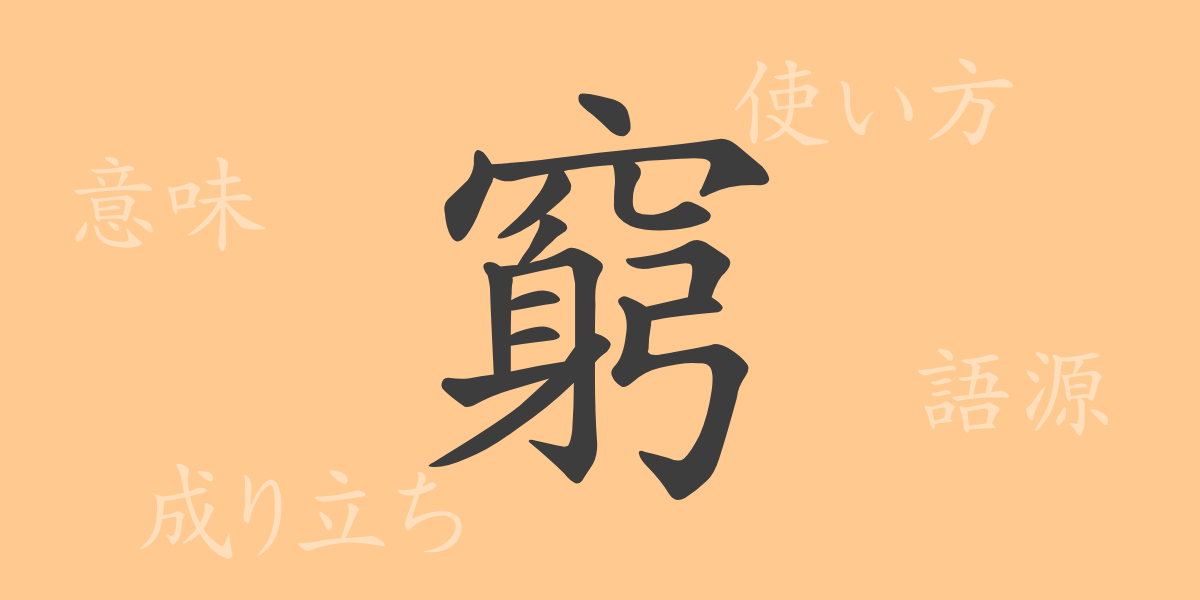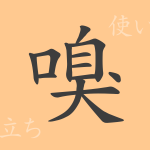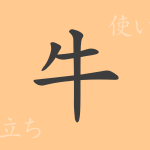The meaning of each kanji character is deeply rooted in its shape and history. The common kanji “窮(きゅう, kyū)” is no exception. This character, frequently seen in daily life, is used in many idioms, phrases, and proverbs, demonstrating its wide usage. However, how many truly understand the real meaning of “窮(きゅう, kyū)”? This article will delve into the origin, meaning, usage, readings, and various idioms of “窮(きゅう, kyū),” offering a detailed explanation.
Origin of 窮(きゅう, kyū)
The kanji “窮(きゅう, kyū)” originated from ancient China, symbolizing a state of confinement or extremity. Evolving from ancient pictographs, it came to represent difficulty or a distressed state. This character was used to depict a situation of being cornered in a narrow hole or corner, which eventually extended to mean “being stuck” or “reaching the limit.”
Meaning and Usage of 窮(きゅう, kyū)
“窮(きゅう, kyū)” means facing difficulties or being in a state of extremity. It is often used in negative contexts but can also denote something reaching its ultimate state in a positive sense. For example, “窮地に立つ(きゅうちにたつ, kyūchi ni tatsu)” means “to stand in a difficult position,” “窮状(きゅうじょう, kyūjō)” means “a distressed condition,” and “窮する(きゅうする, kyū suru)” means “to be distressed.”
Readings, Stroke Count, and Radical of 窮(きゅう, kyū)
The kanji “窮(きゅう, kyū)” has a relatively complex structure in the Japanese language.
- Reading: The on-yomi (Chinese reading) is “キュウ(きゅう, kyū),” and the kun-yomi (Japanese reading) includes “きわ.まる(きわまる, kiwamaru),” “きわ.める(きわめる, kiwameru),” “きわ.まり(きわまり, kiwamari),” and “きわ.み(きわみ, kiwami).”
- Stroke count: “窮(きゅう, kyū)” consists of 10 strokes.
- Radical: The radical is 穴(あなかんむり, anakammuri), which is associated with holes or caves.
Idioms, Proverbs, and Expressions Using 窮(きゅう, kyū)
There are numerous idioms, proverbs, and expressions that include “窮(きゅう, kyū),” each with unique meanings and nuances. Here are a few examples:
- 窮地に立つ(きゅうちにたつ, kyūchi ni tatsu): To be in a very difficult position.
- 窮状を訴える(きゅうじょうをうったえる, kyūjō wo uttaeru): To appeal about a difficult situation or distress.
- 逼塞窮極(ひっそくきゅうきょく, hissoku kyūkyoku): To be in an extremely difficult situation.
- 窮鼠猫を噛む(きゅうそねこをかむ, kyūsoneko wo kamu): A proverb meaning that a cornered rat will bite the cat, symbolizing a desperate person fighting back.
- 窮余の一策(きゅうよのいっさく, kyūyo no issaku): The last resort when there are no other options.
Summary of 窮(きゅう, kyū)
Through this article, we have deepened our understanding of the kanji “窮(きゅう, kyū)” and its meanings and usages. In Japanese, the power of a single character is immeasurable. Understanding and correctly using kanji like “窮(きゅう, kyū)” can enrich your expressive capabilities. Keeping in mind that each kanji character you encounter in daily life holds a wealth of history and meaning can deepen your interest and comprehension of the language.

























